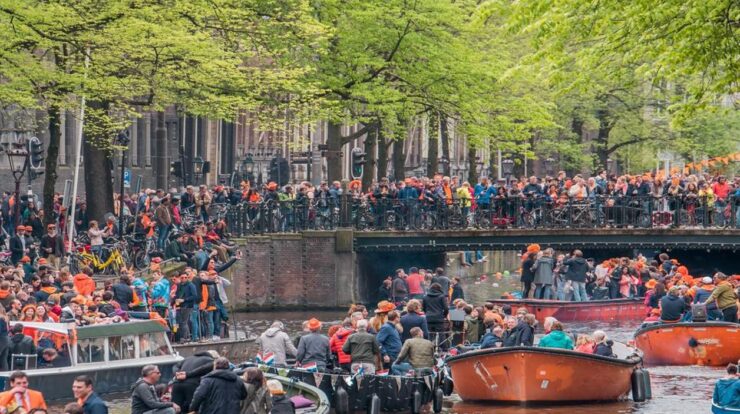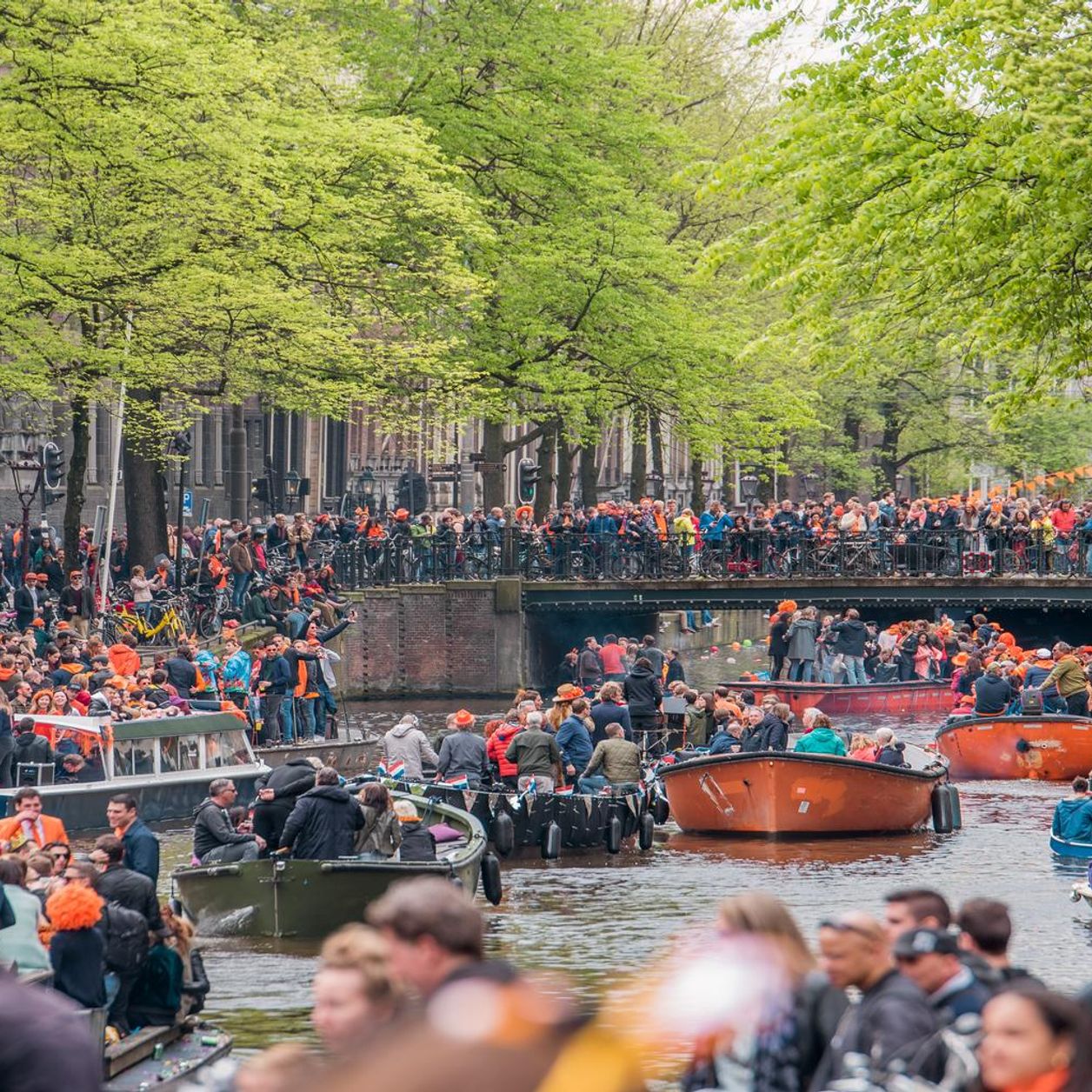
King’s Day Amsterdam is an annual celebration that transforms the city into a vibrant tapestry of orange, music, and merriments. With its rich history, cultural significance, and unforgettable festivities, this event is a must-see for anyone seeking an immersive experience of Dutch culture.
Rooted in the birthday of King Willem-Alexander, King’s Day is a national holiday that brings together locals and tourists alike to revel in the spirit of unity, diversity, and inclusivity.
Event Overview: King’s Day Amsterdam

King’s Day, celebrated annually on April 27th, is a vibrant and exuberant festival in Amsterdam, honoring the birthday of King Willem-Alexander. This national holiday commemorates the Dutch monarchy and symbolizes national unity, pride, and cultural heritage.
The celebration’s roots lie in the 19th century, when it was known as Queen’s Day to mark the birthday of Queen Wilhelmina. Over the years, the event has evolved into a massive street festival, attracting millions of visitors to Amsterdam each year.
Festivities and Activities
King’s Day is characterized by a kaleidoscope of festivities that paint the city orange, the official color of the Dutch royal family. The celebration is a vibrant display of Dutch culture, featuring:
- Flea Markets:The city transforms into a vast open-air market, with locals and vendors setting up stalls to sell a wide range of items, from antiques to vintage clothing and handmade crafts.
- Music Performances:Music fills the air as stages are set up throughout the city, hosting live performances by local and international artists, ranging from DJs to traditional Dutch bands.
- Street Parties:The streets come alive with spontaneous street parties, where people gather to dance, sing, and enjoy the festive atmosphere. The city’s canals become a hub for boat parties, adding to the vibrant revelry.
Cultural Impact
King’s Day has a profound cultural impact on Amsterdam and the Netherlands. It fosters a sense of community and national pride, bringing people together to celebrate their shared heritage and traditions.
The celebration also provides a significant economic boost to the city, with increased tourism, retail sales, and hospitality revenue. The influx of visitors creates a lively atmosphere and contributes to the city’s vibrant cultural scene.
Logistics and Planning
For visitors planning to attend King’s Day in Amsterdam, it’s essential to consider the following:
- Transportation:Public transportation operates on a reduced schedule during the festival. It’s advisable to use the metro, trams, or ferries to navigate the city. Alternatively, walking or cycling can be a great way to experience the festivities.
- Accommodation:Booking accommodation well in advance is crucial, as the city experiences a surge in visitors during King’s Day. Consider staying in nearby cities like Haarlem or Utrecht if Amsterdam accommodations are fully booked.
- Safety:While King’s Day is generally a safe event, it’s always wise to be aware of your surroundings and take precautions against pickpockets or excessive alcohol consumption.
History and Evolution
King’s Day has its roots in the 19th century, when it was celebrated as Queen’s Day to honor Queen Wilhelmina. In 2013, the celebration was renamed King’s Day to mark the coronation of King Willem-Alexander.
Over the years, the celebration has evolved from a small-scale event to a massive street festival. The introduction of flea markets and street parties has transformed it into a vibrant and unique celebration of Dutch culture.
Economic Impact
King’s Day has a significant economic impact on Amsterdam. The influx of tourists during the festival generates substantial revenue for the city.
According to the Amsterdam Economic Board, King’s Day brings in approximately €200 million in revenue, primarily through tourism, retail sales, and hospitality. The festival also supports local businesses and entrepreneurs, providing a platform for them to showcase their products and services.
Social and Cultural Significance
King’s Day is more than just a celebration of the Dutch monarchy; it’s a symbol of national unity and pride. The festival brings people together from all walks of life, fostering a sense of community and shared identity.
King’s Day also plays a role in shaping the identity and culture of Amsterdam. The vibrant street parties, flea markets, and music performances showcase the city’s unique blend of tradition and modernity, making it a beloved event for both locals and visitors alike.
Ending Remarks
As the day draws to a close, the streets of Amsterdam reverberate with the echoes of laughter, music, and the collective joy that defines King’s Day. This extraordinary celebration serves as a testament to the vibrant spirit of Amsterdam and the Netherlands, leaving an unforgettable impression on all who experience it.
FAQ Compilation
When is King’s Day celebrated?
King’s Day is celebrated on April 27th each year.
What is the significance of the color orange during King’s Day?
Orange is the color of the Dutch royal family, and it has become synonymous with King’s Day celebrations.
What are some of the most popular activities during King’s Day?
Popular activities include visiting flea markets, attending music performances, and participating in street parties.





